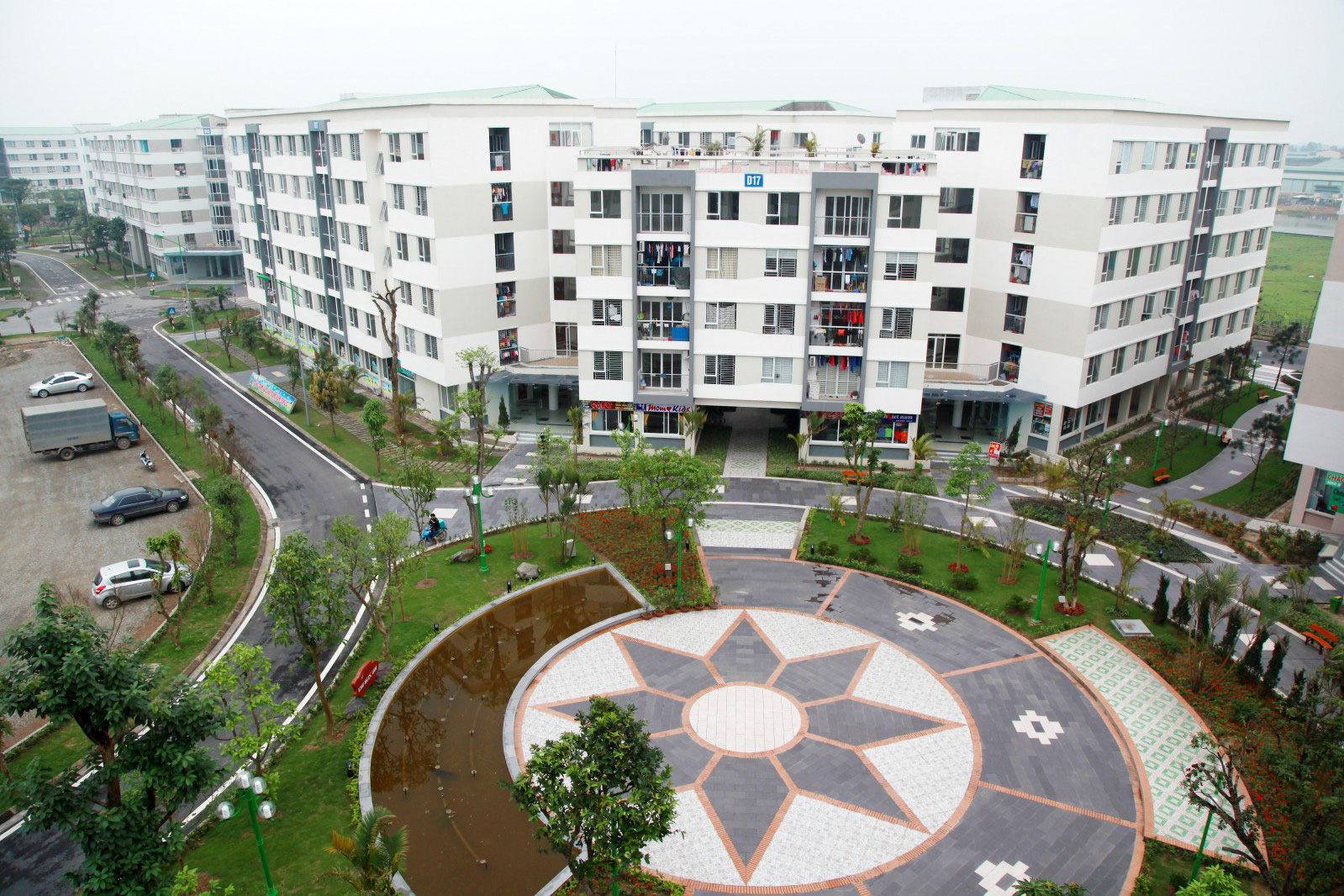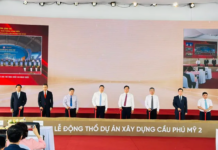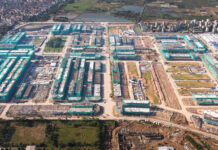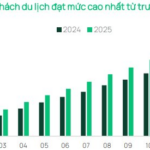
At the seminar titled “Solving the Affordable Housing Shortage and Strategies to Attract Residents to New Urban Areas” held on the afternoon of October 17, Mr. Nguyen Trung Vu, Chairman of Cen Land’s Board of Directors, presented a series of practical solutions to address the affordable housing challenge. He also emphasized the need to support the younger population to prevent demographic aging after 2035.
Mr. Vu suggested that affordable housing should be priced around 2 billion VND, with long-term installment plans to make it accessible for young people. “Currently, a young person would need to work for 80 years without eating or drinking to afford a home in Hanoi. We must aim to bring housing prices down to a reasonable level,” Mr. Vu analyzed.
Citing the example of Nam Long Group’s project in Hai Phong, Mr. Vu noted, “Nam Long has a project in the city center of Hai Phong with prices just over 30 million VND per square meter. They partnered with Japanese corporations to secure long-term, low-cost, and stable capital. This is why they can offer low prices while maintaining quality. Meanwhile, many domestic developers have capital and land but lack access to affordable financing—this is the biggest bottleneck.”
The second solution focuses on the principle that “homes are for living, not for speculation.” Mr. Vu pointed out that many developers today are merely “land traders” rather than true real estate developers, with exceptions like Vingroup or Sun Group, which create attractive living experiences for millions. To address this, he proposed new construction rules, allowing projects to start only after reaching a minimum sales threshold and tightening customer deposit collection.
“In many countries, developers can only begin construction after selling 50–70% of the units, with buyer deposits held by an intermediary bank, inaccessible to anyone. If we implement this mechanism, Vietnam’s market will become much safer and more transparent,” Mr. Vu stated.

Mr. Nguyen Trung Vu, Chairman of Cen Land’s Board of Directors, presents practical solutions to tackle the affordable housing challenge.
Regarding infrastructure, Mr. Nguyen Trung Vu emphasized that urban development must go hand in hand with transportation development, particularly high-speed rail systems and the TOD (Transit-Oriented Development) model.
With 16 high-speed rail stations, 16 new urban centers will emerge in localities like Cam Lam (Khanh Hoa) and Ha Nam, spanning thousands of hectares. However, Mr. Vu warned of the risk of land prices soaring before infrastructure completion or haphazard planning leading to “ghost cities” like in China, where 70% of urban areas are underutilized due to rapid population decline. He stressed the importance of integrating TOD with urban development to avoid costly mistakes.
Additionally, Mr. Vu highlighted the role of government policies in reducing land use taxes to lower costs, especially in satellite urban areas or new development zones. “If land use fees are seen as a short-term revenue source, housing prices will be driven up, making it difficult for businesses to sell and citizens to buy. But if viewed as a long-term revenue source, we can nurture a sustainable market,” he proposed.
Policies should also support actual homebuyers and curb speculation. Without control, some individuals might buy 5–10 units just to hold, while those genuinely in need cannot purchase a home.
Another solution Mr. Vu suggested is taxing vacant properties and speculative purchases. “We can monitor this through electricity and water usage. If a property shows no minimum consumption for 3–6 months, it should be taxed to prevent social waste.” Banks should only provide loans for properties already in use or with proven stable cash flow.
Long-term, Mr. Nguyen Trung Vu believes the housing issue is intertwined with population policies, social welfare, and societal development. Vietnam currently enjoys a demographic dividend with its young population, but aging is approaching post-2035. “We must create conditions for young people to settle down and start families. To encourage higher birth rates, we must first ensure they have housing. Housing is not just an asset but the foundation of family and national development,” Mr. Vu said.
He further emphasized, “We must view housing as a social welfare benefit, not just a commercial commodity. When citizens can own homes at reasonable prices, they will work more securely and contribute more to the economy. This is the most sustainable and meaningful way to develop Vietnam’s real estate market.”
Expert Strategies to Stabilize the Real Estate Market
In addition to construction costs, land expenses play a significant role in determining both the cost and selling price of apartments, alongside profit expectations. When cost considerations are effectively addressed, the market can introduce more affordable products, meeting the substantial demand of urban residents.
Unveiling T&T City Millennia: A Revolutionary Experience for Buyers and Investors
The grand opening of T&T City Millennia on October 19th is poised to become a magnet for thousands of investors, igniting a vibrant and highly promising new development cycle in the southern region of Ho Chi Minh City.
Money Laundering in the Digital Asset Era: Acquiring Clean Projects with Dirty Money, Then Crashing Them to Erase Traces
Unveiling a sophisticated money laundering scheme, bad actors create seemingly legitimate crypto projects, only to purchase them with illicit cryptocurrency assets. They then transfer the funds back to themselves before ultimately collapsing the project, effectively erasing any trace of their malicious activities.




















